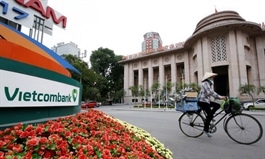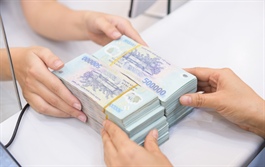Which Vietnamese banks have been keeping NPLs under 1 per cent?
Which Vietnamese banks have been keeping NPLs under 1 per cent?
While a number of banks experienced sharp increases in non-performing loans (NPLs) due to the unprecedented pandemic, some lenders have successfully kept their NPL ratios below 1 per cent.

While NPLs have generally risen, several banks managed to defy the odds and make headways
|
As of December 31, 2020, Techcombank had the lowest NPL ratio stood in the system at 0.5 per cent, lower than 0.6 per cent on September 30, 2020 and 1.3 per cent as of December 31, 2019.
Meanwhile, Vietcombank – one of the largest state-owned lenders in Vietnam – recorded VND5.229 trillion ($227.35 million), down more than 50 per cent compared to the end of September and down 10 per cent compared to the beginning of 2020.
The bank's NPL ratio dropped sharply from 1.01 per cent at the end of this year’s third quarter to 0.62 per cent by the end of 2020 – also the lowest level in its history.
ACB's NPL ratio remains one of the lowest levels in the landscape. According to the bank’s financial statements, soured debts at the end of 2020 were VND1.840 trillion ($80 million), up 27 per cent compared to the beginning of the year.
Similarly, BAC A BANK’'s NPL ratio increased slightly but was still controlled below 1 per cent. The bank's NPLs at the end of 2020 amounted to VND628 billion ($27.3 million), up 25.6 per cent from the beginning of the year.
The fifth lender reporting an NPL ratio below 1 per cent is ViettinBank (around 0.94 per cent as of December 31, 2020), according to local newswire Doanh nghiep & Tiep thi. This is also its lowest NPL ratio in the 2016-2020 period.
VietinBank and ACB in 2020 have signed exclusive bancassurance contracts with major life insurers (VietinBank with Manulife, ACB with Sun Life). These deals are envisaged to provide the two lenders with a large amount of revenue, while also boosting their stock value.
HDBank and MB had more than 1 per cent NPL ratios due to their consumer finance companies (HD Saison of HDBank, and MCredit of MB). However, the asset quality of the parent banks remains basically good in the domestic banking system.
The bad debt ratio of HDBank's banking arm by the end of 2020 was only 0.93 per cent, while that of MB was 0.92 per cent.
Another local lender below the 1 per cent threshold is NamABank, the newly-listed ticker in UPCoM. The bank’s total bad debt ratio decreased from 1.97 per cent at the end of 2019 to 0.83 per cent as of December 2020.
























